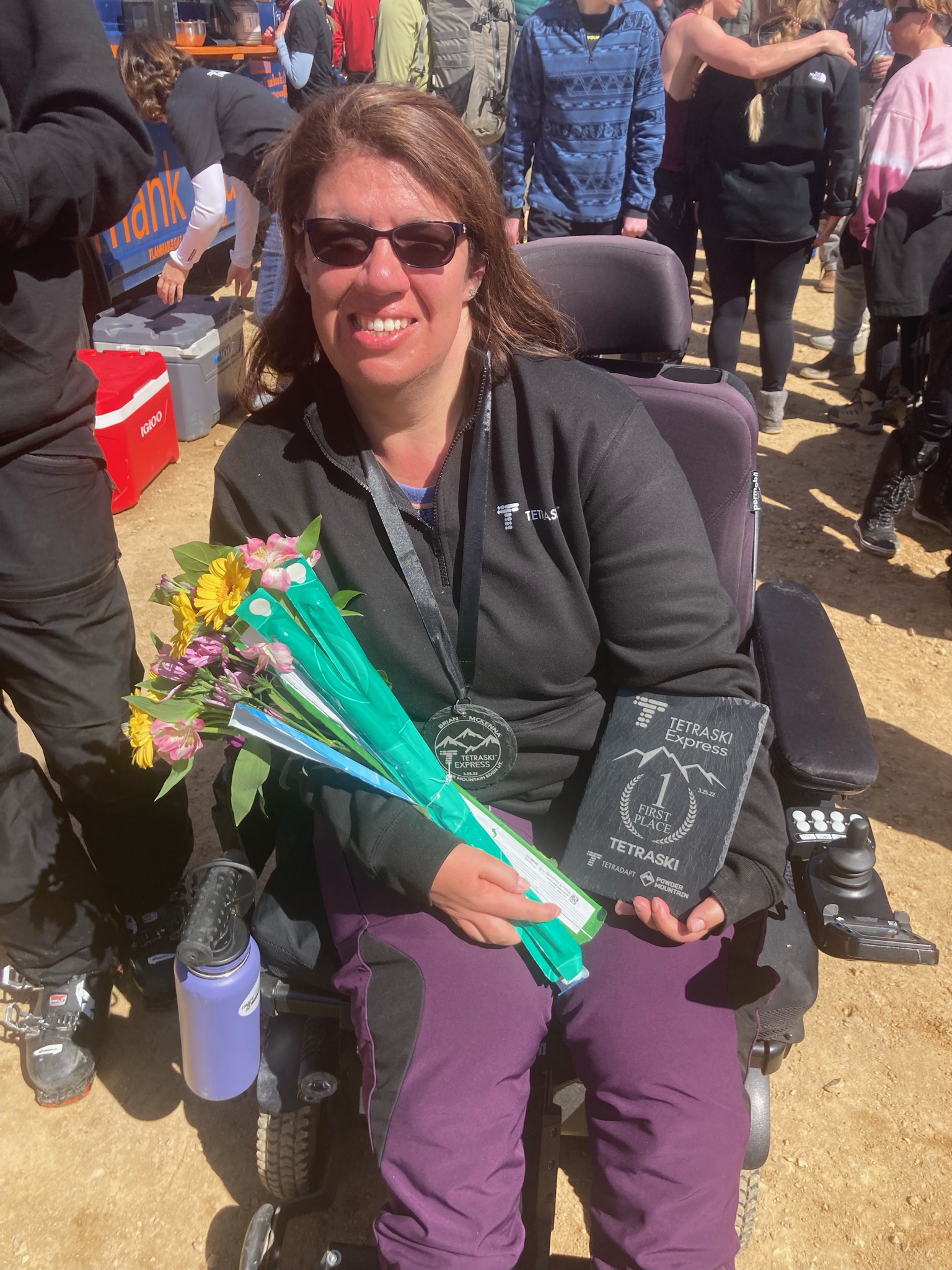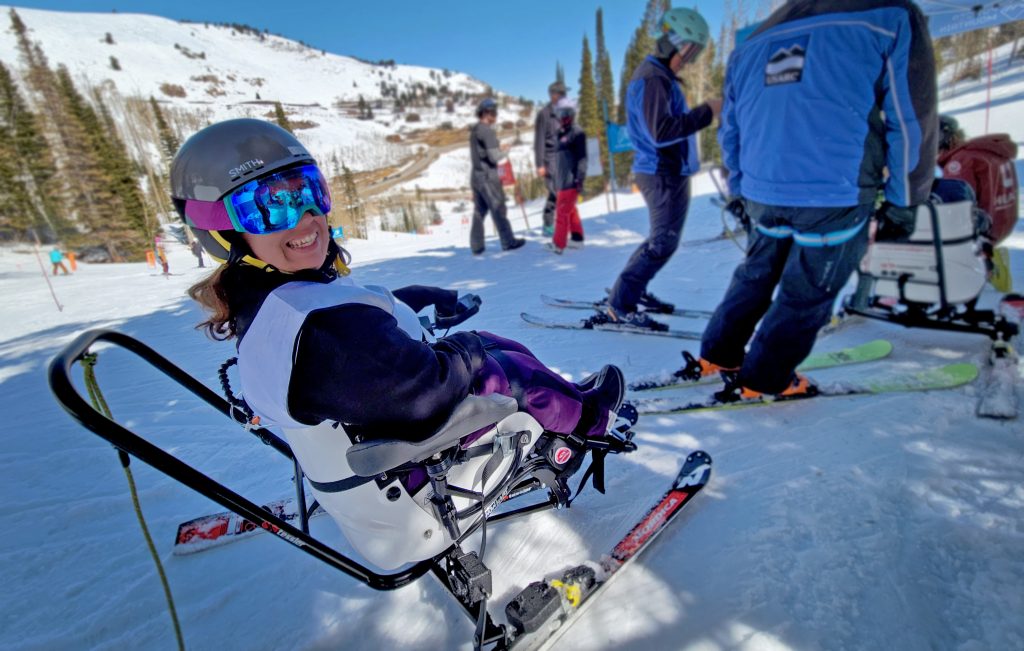Kim Kolstad spent much of her childhood outdoors—camping, canoeing and tubing on the lake with her family. As she grew older, though, it became more difficult for her to participate in outdoor activities without assistance.
Kolstad was born with arthrogryposis, a rare condition affecting her joints and muscles. Numerous doctors, therapists and even family members discouraged her from pursuing outdoor passions because of the complexity and severity of her condition. But she refused to let that stop her. She tried skydiving and paragliding, but neither were widely available. It turns out that opportunities for adaptive sports were extremely limited, and Kolstad started to lose hope. Then, she found Arizona Disabled Sports (AZDS) and was able to kayak on Tempe Town Lake—her fire for adventure was rekindled. She wanted more.
Her pursuit led her to the Adaptive Ski and Snowboard Program, a collaboration between Northern Arizona University’s Institute for Human Development (IHD) and the Northern Arizona Adaptive Sports Association (NAASA). This program is one of only six in the world that provides its participants with TetraSkis, state-of-the-art adaptive ski equipment featuring a joystick and a breath-controlled system for turning and controlling speed, allowing individuals with complex disabilities to ski independently.
“Being able to participate in adaptive sports and recreation has changed my life completely,” Kolstad said. “I am now focusing on my abilities and stretching them to their limits, rather than on my disability. I no longer have to watch from the sidelines, wishing I could participate.”

“I am completely immersed in every activity I want to try, and I’m good at it! My self-confidence has soared this last year, and I owe it all to my adaptive ski instructors (Truman Shoaff and Carley Turner, students in NAU’s Parks and Recreation program), NAASA and the scholarships I received. I can’t thank ADDPC and IHD enough for making my dreams of adventure come true!”
Kolstad continues to explore outdoor recreation opportunities, volunteering at NAASA events, helping test out trails for the adaptive bike program and participating in other adaptive sports programs in Arizona.



